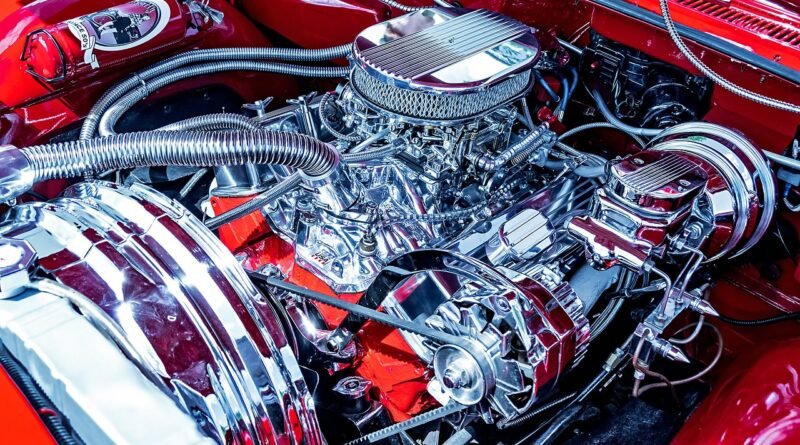7 Tips for Maintaining Your Car’s Engine
Maintaining your car’s engine is crucial for keeping your vehicle running smoothly and extending its lifespan. As a car owner, it’s important to understand the basic maintenance tasks that can help keep your engine in top shape. From regular oil changes to checking and replacing vital components, there are several simple yet effective ways to ensure your engine is well-maintained. In this blog post, we will discuss seven tips for maintaining your car’s engine so you can hit the road with confidence and peace of mind. So, let’s dive in and learn how to care for your car’s engine like a pro!
Check and Change the Oil Regularly
One of the most essential tasks for maintaining your car’s engine health is to check and change the oil regularly. Engine oil lubricates moving parts, reduces friction, and helps to keep the engine cool by drawing heat away from the combustion chamber. Neglecting oil changes can lead to increased engine wear, overheating, and engine failure. It’s recommended to check your oil level monthly and change it according to the manufacturer’s guidelines, typically every 3,000 to 5,000 miles, depending on your vehicle and the type of oil used. Always use the oil grade the car manufacturer recommends to ensure optimal engine performance and longevity.
Replace the Air Filter as Needed
The air filter in your car plays a critical role by preventing dust, dirt, and other contaminants from entering the engine. A clogged air filter can significantly reduce your engine’s efficiency, leading to higher fuel consumption and decreased performance. It is advisable to inspect your air filter every 12,000 to 15,000 miles and replace it if necessary. A clean air filter ensures that your engine receives a proper mix of air and fuel, which is vital for optimal combustion and engine performance. Regular air filter replacement can also help prolong the engine’s life.
Keep the Cooling System Running Properly
The cooling system is vital for preventing your engine from overheating. Ensure the coolant level is checked regularly and topped up as needed. It’s also important to replace the coolant according to your vehicle manufacturer’s recommendations, typically every 30,000 to 60,000 miles. Look out for leaks in the system, as they can lead to coolant loss and overheating. Keeping the radiator, thermostat, and water pump in good condition is crucial for a properly functioning cooling system. Regular maintenance of these components helps maintain the engine’s temperature within the optimal range and prevents engine damage.
Use the Right Fuel Grade for Your Car
Choosing the correct fuel grade for your car is not just a suggestion—it’s a necessity for maintaining engine health. Your vehicle’s manual specifies the recommended octane rating, which you should adhere to for optimal performance. Using a lower octane fuel than recommended can lead to engine knocking, which, over time, may cause significant damage. Conversely, opting for a higher octane fuel than your car requires does not usually offer any benefit and may result in unnecessary expense. Sticking to the recommended fuel grade ensures your engine runs efficiently and minimizes the risk of damage.
Pay Attention to the Check Engine Light
Ignoring the check engine light can be a critical mistake. This warning light is your vehicle’s way of telling you that something is wrong with the engine or related systems. Whether it’s a minor issue like a loose gas cap or something more serious requiring immediate attention, diagnosing and addressing the problem promptly is essential. Failing to do so can lead to more significant, costly repairs down the line. Always consult a professional mechanic to read the diagnostic codes and undertake necessary repairs to maintain your car’s engine efficiency and performance.
Regularly Inspect Belts and Hoses
Belts and hoses are integral to your car’s engine performance, playing key roles in operations such as cooling, air conditioning, and the charging system. Over time, these components can become worn or damaged, leading to leaks, overheating, or engine failure. It’s crucial to inspect these parts regularly for any signs of wear or damage, such as cracks, fraying, or leaks, and replace them as needed. A routine inspection of every oil change can help catch issues early, preventing more severe problems and ensuring your engine runs smoothly.
Practice Gentle Driving Habits
Adopting gentle driving habits can significantly extend your engine’s life and improve overall vehicle performance. This means avoiding sudden starts and stops, which can strain the engine and its components. Gradually accelerating and decelerating allows your engine to operate under less stress, reducing wear and tear over time. Additionally, avoiding high speeds and not overloading your vehicle can also contribute to maintaining engine health. These practices benefit your engine and lead to better fuel efficiency and a smoother driving experience.
Summary
Regularly check and change the oil according to the manufacturer’s guidelines. To maintain engine efficiency, replace the air filter every 12,000 to 15,000 miles. Keep the cooling system in excellent condition by checking coolant levels and addressing any leaks. Use the recommended fuel grade to prevent engine knocking. Promptly address the check engine light and regularly inspect belts and hoses for wear or damage. Additionally, adopting gentle driving habits can reduce engine strain and improve overall performance.

